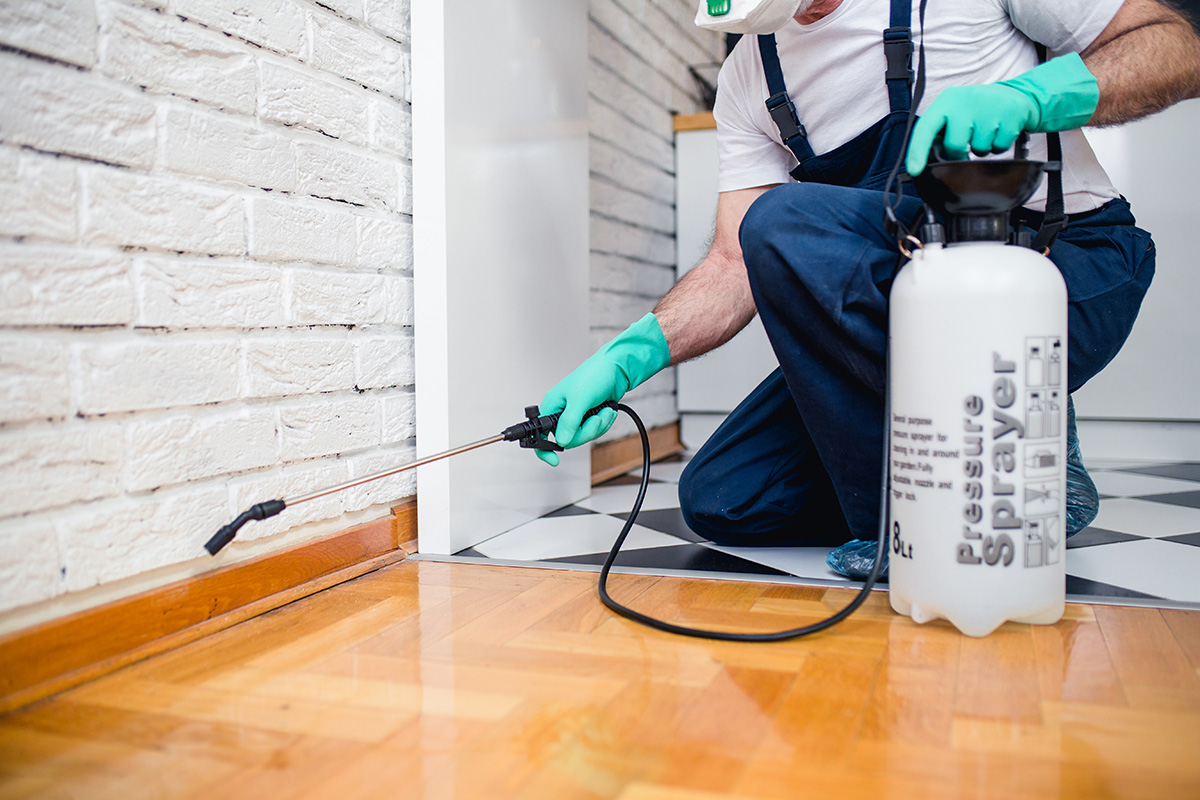Trusted A1 Bed Bug Exterminator Charlotte - Get Rid of Bed Bugs Rapid
Trusted A1 Bed Bug Exterminator Charlotte - Get Rid of Bed Bugs Rapid
Blog Article
Bed Bug Therapy Failure: Comparing Chemical Vs. Non-Chemical Solutions
In the realm of pest control, especially when taking care of the relentless issue of bed pests, the choice between chemical and non-chemical treatment options can be a pivotal one. Both techniques supply distinctive advantages and disadvantages, affecting elements such as performance, safety considerations, and total cost. By taking a look at the nuanced details of each technique, a more clear understanding of which path to pursue in attending to a bed insect infestation can be obtained.
Efficiency of Chemical Therapies
Chemical therapies for bed pest problems have actually been widely acknowledged for their rapid and potent effectiveness in eradicating these parasites. When thinking about the performance of chemical treatments, it is crucial to understand that they can give a fast and detailed solution to a bed insect trouble. Expert pest control operators typically depend on insecticides to target bed insects at numerous stages of their life process, consisting of adults, nymphs, and eggs. These chemicals generally function by disrupting the bed insects' nerves, resulting in paralysis and eventual fatality.
In addition, chemical treatments have the advantage of using recurring results, meaning that they can proceed to get rid of bed pests also after the initial application. This recurring activity is specifically beneficial in combating any kind of possible re-infestations. In addition, the rapid action of chemical therapies can bring alleviation to people dealing with extreme bed bug infestations, allowing them to regain control of their space rapidly.
Security Issues With Chemical Solutions
One essential facet that needs mindful consideration when utilizing chemical solutions for bed bug treatment is making certain the security of owners and the environment. While chemical therapies can be efficient in eradicating bed insects, they may posture dangers if not handled appropriately. One of the key safety and security interest in chemical options is the potential damage they can create to human health. Exposure to specific chemicals used in bed bug treatments can cause breathing problems, skin irritation, or other adverse reactions, especially in people with pre-existing problems or sensitivities. Furthermore, improper application or dosage of chemical pesticides can cause harmful deposits sticking around in the treated area, posing long-lasting health dangers to occupants.
In addition, the ecological impact of chemical services is another significant factor to consider. Some pesticides used in bed bug therapies may be damaging to helpful insects, wild animals, and environments if they leach right into the dirt or water supply. It is vital to make use of chemical treatments carefully, adhering to security guidelines, and considering much less harmful options to alleviate these risks and make sure the effective and risk-free administration of bed insect infestations.
Advantages of Non-Chemical Strategies
Considering the potential safety and security worries and environmental impact linked with chemical services for bed bug therapy, discovering non-chemical techniques presents a promising choice with a number of unique benefits. Non-chemical therapies are ecologically friendly, as they do not contribute to air or water contamination, making them a sustainable selection for insect control.
Additionally, non-chemical remedies can be efficient in targeting bed bugs, consisting of hard-to-reach areas where chemical therapies might not penetrate. Approaches such as warm treatment, vacuuming, vapor cleaning, and mattress coverings offer complete elimination without using harmful chemicals. In addition, non-chemical methods can be much less turbulent, requiring very little preparation and enabling quicker reentry right into treated areas. On the whole, selecting non-chemical bed bug therapy approaches not only focuses on safety and security and environmental management but also makes certain efficient and detailed bug control. get more
Limitations of Non-Chemical Treatments

Additionally, non-chemical treatments usually need numerous more info here applications to achieve successful obliteration. This can be taxing and may not constantly guarantee total removal of all bed bugs and their eggs, especially in hidden or hard-to-reach places.
In addition, the success of non-chemical treatments greatly relies upon proper application and thoroughness, which can be challenging for people without specialist expertise. Insufficient application of non-chemical techniques might result in incomplete elimination, leading to consistent problems and the need for added treatments.
Consequently, while non-chemical treatments have their advantages, it is important to acknowledge these limitations and consider them when figuring out one of the most efficient method for managing bed pest invasions.
Price Contrast: Chemical Vs. Non-Chemical Options
Given the restrictions linked with non-chemical treatments, an important facet to review in the context of bed bug administration is the cost comparison between chemical and non-chemical options. In comparison, non-chemical therapies like warmth therapy or steam can be more expensive, with expenses varying from $1,000 to $6,000 for a whole home. While the first cost of chemical therapies may seem lower, several therapies might be required to completely eradicate the problem, potentially increasing the overall expense.
Verdict

Considering the prospective safety and security concerns and ecological influence associated with chemical remedies for bed bug therapy, checking out non-chemical strategies presents an appealing choice with a number of distinct advantages.Given the limitations associated with non-chemical treatments, a necessary aspect to read this evaluate in the context of bed bug management is the cost contrast in between chemical and non-chemical choices. In contrast, non-chemical treatments like heat treatment or heavy steam can be much more costly, with expenses varying from $1,000 to $6,000 for a whole home. While the initial cost of chemical treatments may appear reduced, numerous treatments may be needed to completely eliminate the invasion, potentially increasing the general price.In verdict, when comparing chemical and non-chemical bed bug treatment options, it is necessary to take into consideration performance, safety and security, advantages, limitations, and cost.
Report this page